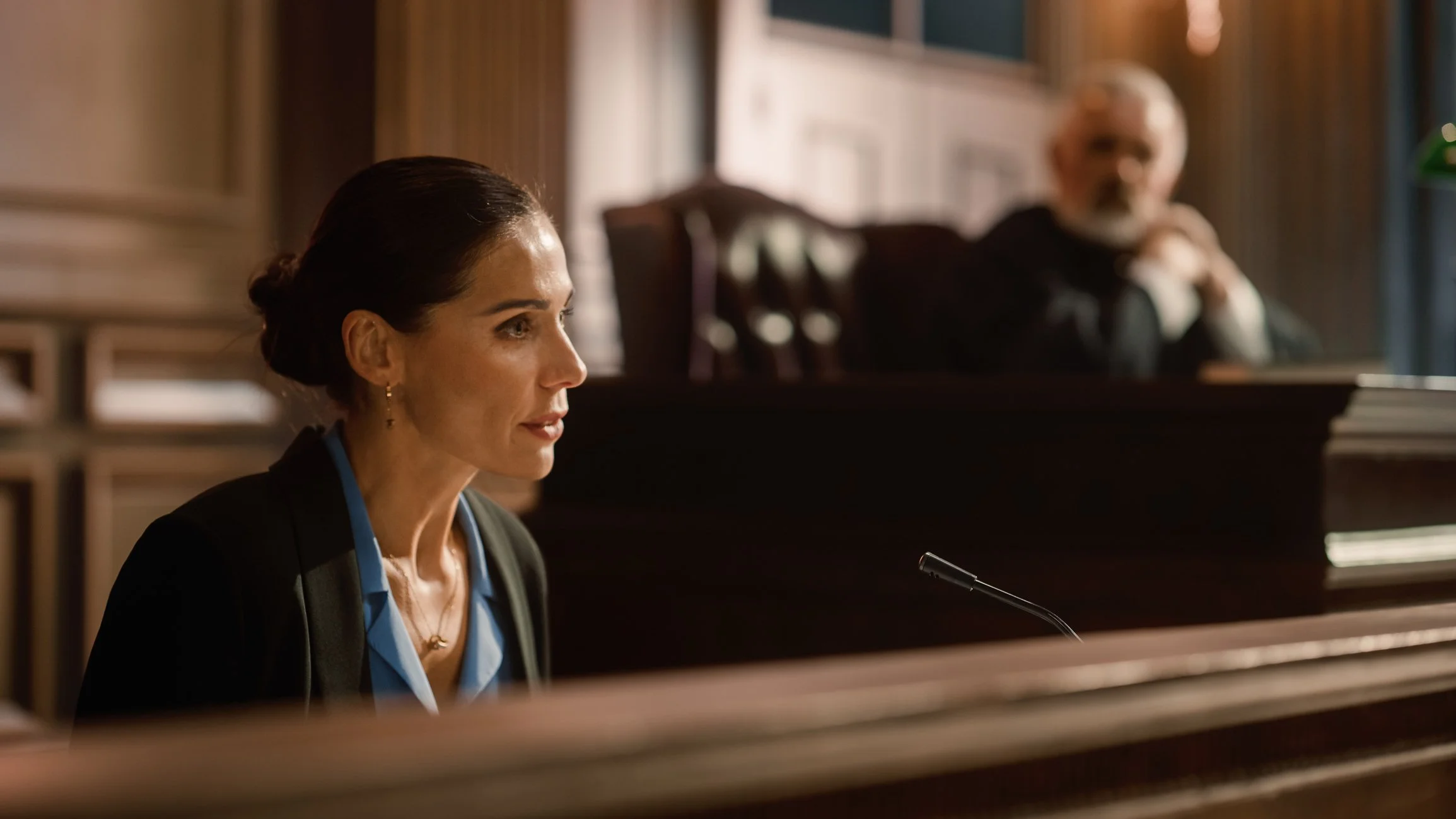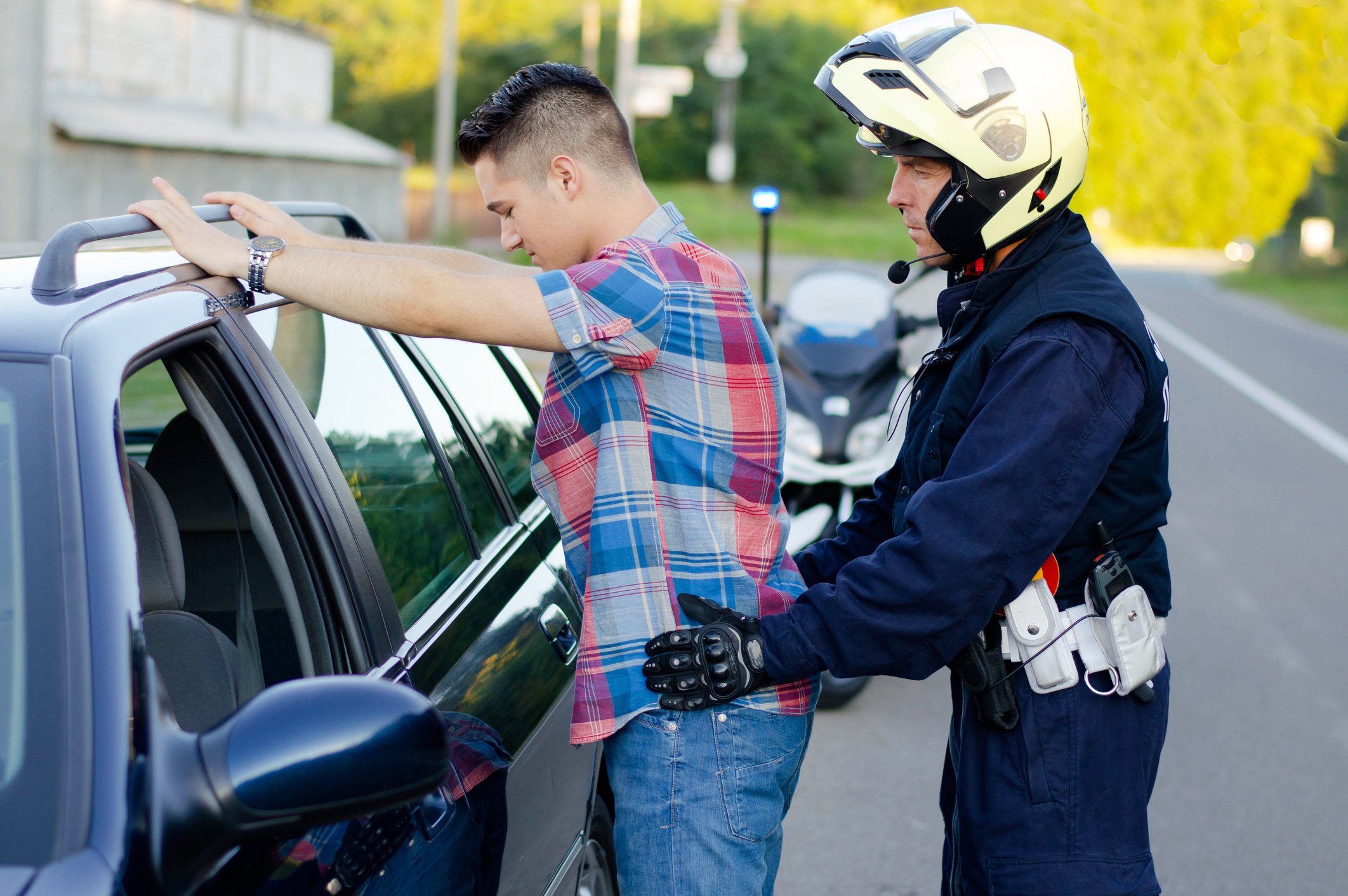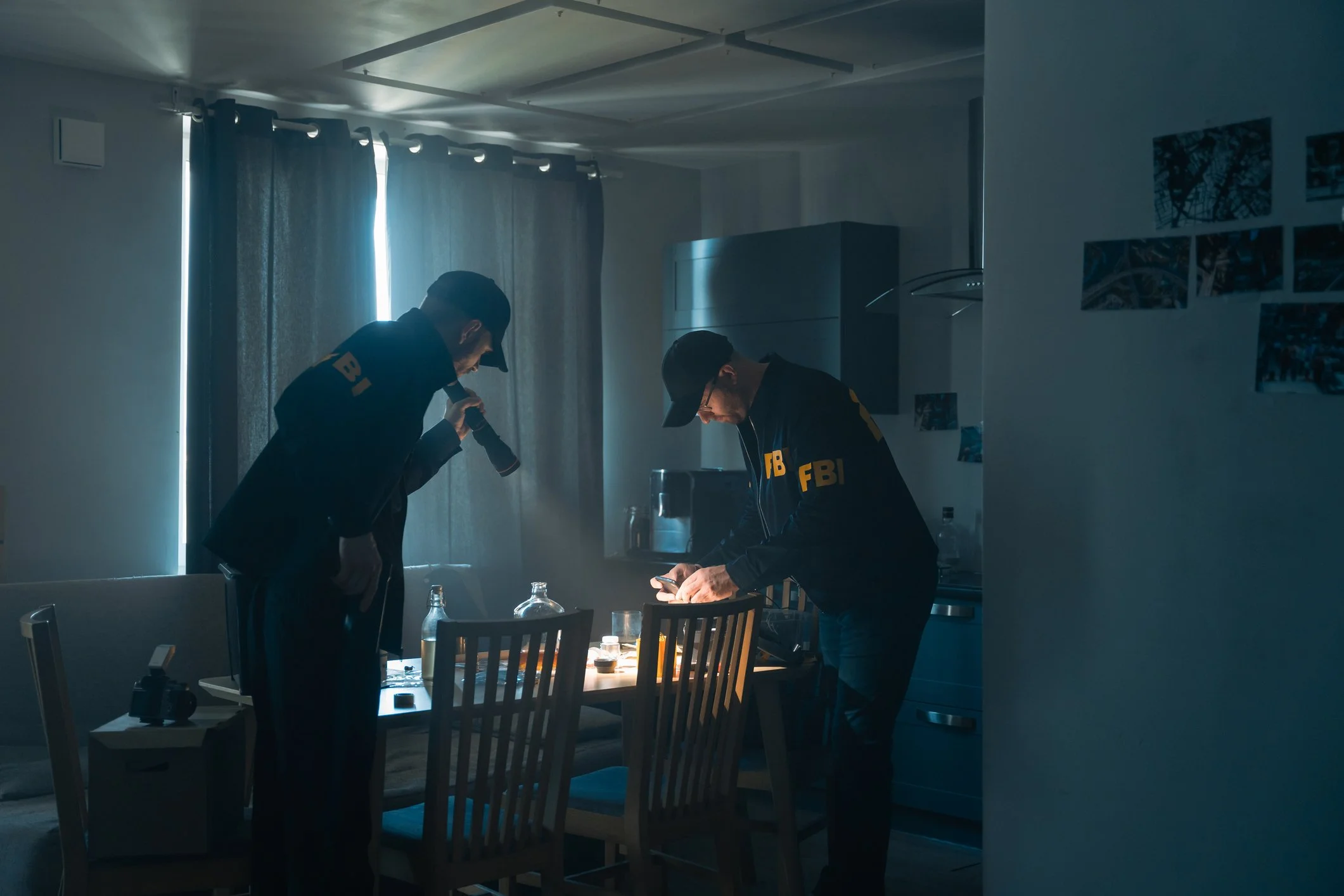
We can help with Attempted Murder or Homicide charges.
We have successfully defended thousands of clients in PA and NJ.
Philadelphia Attempted Murder Lawyers
If you are facing Attempted Murder charges or any other type of assault or homicide charges, we can help. Our award-winning Philadelphia, PA criminal defense lawyers have successfully handled countless criminal cases involving assault charges, shootings, stabbings, and other violent crimes. We are dedicated, understanding criminal defense attorneys who will use our skills and expertise to help you obtain the best possible result in any felony case. If you are charged with or under investigation for any form of homicide or assault, call us at 267-225-2545 to discuss your case and how we can help.
Zak T. Goldstein, Esq. - Philadelphia Criminal Defense Lawyer
What is Attempted Murder?
Attempted murder is a serious offense, and it is most commonly charged by prosecutors in Philadelphia and the surrounding counties when an individual is accused of shooting or stabbing someone. A conviction for attempted murder does not necessarily require a weapon, but in most cases, prosecutors will allege that the defendant used a deadly weapon like a gun or a knife. Attempted murder is similar to aggravated assault, but instead of requiring the prosecution to show only that the defendant caused or attempted to cause serious bodily injury, it requires the prosecution to show that the defendant specifically intended to kill the complainant and took some sort of concrete step towards doing so.
The most common example of an attempted murder would likely be shooting at someone's head and missing. Even though the complainant was not hit by the shot, the prosecution could charge attempted murder under those circumstances, and if a jury believes the evidence, the defendant could be convicted. Similarly, a shooting in which someone shot the complainant multiple times or in the head but the complainant lived would typically be charged by prosecutors as an attempted murder even though the complainant did not die. Additionally, the sentencing guidelines for this offense are extremely high. Fortunately, there are often defenses in these cases.
Defenses to Attempted Murder Charges
Each case is different, and the specific defenses which could apply in your case always depend both on the prosecution's evidence, the investigation undertaken by the police, and the availability of defense witnesses and evidence. The first step in any case is to investigate the allegations thoroughly. We work with talented investigators who are always ready to begin seeking out potential exculpatory witnesses or surveillance footage. We also routinely work with expert witnesses who may be able to rebut the testimony of prosecution experts or challenge the prosecution's purported forensic science. Prosecutors often attempt to use DNA, fingerprints, ballistics, cell site data, social media evidence, or gunshot residue to try to link a defendant to a shooting, but in many cases, the science is unreliable or also consistent with innocence. In other cases, the prosecution and law enforcement officers may have violated your rights by obtaining the evidence in violation of the requirements of the Pennsylvania or United States Constitutions.
Sufficiency of the Evidence. As with any criminal charge, in order to obtain a conviction, the prosecution must prove every element of the statute beyond a reasonable doubt. For attempted murder, this means that the prosecution must prove both that the defendant made an attempt and that the defendant did so with the intent to kill. Under Pennsylvania law, an attempt is "any act which constitutes a substantial step towards the commission of the crime." Therefore, the Commonwealth must be able to show that the defendant took a substantial step towards a homicide and that the defendant did so with the intent to kill. Depending on the allegations, there may be a wide variety of potential defenses. These defenses could range from whether the prosecution has actually identified the right person to whether the defendant acted with the intent to kill as opposed to merely the intent to injure. An intent to injure would only support an aggravated or simple assault charge, and those charges are both much less serious than attempted murder. If the Commonwealth cannot prove each element, then it will not be able to obtain a conviction.
Credibility. The credibility of a witness is almost always an issue in criminal trials. Our criminal defense lawyers will thoroughly investigate the allegations against you as well as whether the witness may have a motive to fabricate or lie. We will then use our cross-examination skills during the preliminary hearing, pre-trial motions, and at trial to explore inconsistencies in witnesses testimony and evaluate whether the witness's story makes sense. If it does not, we may be able to show a judge or jury that the witness should not be believed either because the are lying or have made a serious mistake. In some cases, it may even be possible to bar the testimony of unreliable witnesses by filing pre-trial motions such as motions to suppress and motions in limine.
Motions to Suppress. Under both the Pennsylvania and United States Constitutions, the prosecution must always be able to show that the police obtained any physical evidence or confessions legally. If the police conducted an unlawful search and seizure or obtained a confession without required Miranda warnings, it may be possible to have incriminating evidence excluded from trial. Our lawyers will thoroughly investigate the case, review all of the discovery, and file any pre-trial motions which could be used to exclude damaging evidence which may have been illegally obtained.
Sentencing For Attempted Murder Convictions
Attempted murder is a felony of the first degree. Like most felonies of the first degree, it is always punishable by up to at least 20 years in jail and substantial fines. Although there are currently no mandatory minimums for a Pennsylvania attempted murder conviction unless the defendant has prior convictions for "strike" offenses, the sentencing guidelines will call for an extremely high recommended sentence for a defendant who is convicted of an attempted homicide. Depending on whether the court finds that the defendant actually cased serious bodily injury, the Offense Gravity Score under the sentencing guidelines for a conviction will be 13 or 14. It is 14 if the defendant caused serious bodily injury. Additionally, as many attempted murder cases stem from shootings, most cases are going to involve the use of a deadly weapon. That means that the sentencing guidelines would be based on the deadly weapon enhancement instead of on the normal sentencing guideline matrix. Assuming the causation of serious bodily injury and the use of a deadly weapon like a gun, even a defendant with no prior criminal convictions would face a recommended minimum sentence in the range of 90 months to the statutory limit plus or minus twelve months for mitigating or aggravating circumstances. This means the judge is bound only by the statutory maximum when sentencing a defendant on an attempted homicide charge.
Finally, where a defendant actually caused serious bodily injury, the maximum potential sentence becomes 40 years in prison instead of 20 years. If the defendant did not cause serious bodily injury, then the maximum remains 20 years’ incarceration and a $25,000 fine. Given this substantial difference in maximums, many cases may involve challenging whether the complainant actually suffered serious bodily injury. It is also important to check whether the prosecution properly filed notice of intent to seek the serious bodily injury enhancement as the failure to do so in advance may preclude the prosecution from obtaining an aggravated 40 year sentence even in the event of a conviction involving serious bodily injury. In general, it is up to the jury to decide whether serious bodily injury occurred, and it is not a decision that the judge should make at a sentencing hearing following a trial.
We Have Won Cases Involving Shootings - Case Study - Commonwealth v. L.W.
Attorney Goldstein recently obtained a full acquittal in the case of Commonwealth v. L.W.. The prosecution charged L.W. with attempted murder, aggravated assault, and various illegal firearms charges for allegedly shooting a complainant in the head at a Southwest Philadelphia block party. The Commonwealth alleged that L.W. shot the complainant in the head at point blank range, but the bullet did not penetrate his skull. The complainant initially fell down, but he quickly jumped back up and ran to a nearby police car as officers arrived on the scene to begin shutting down the block party. The officers quickly transported the complainant to the hospital and began questioning him.
The complainant consistently denied that the defendant had shot him from the beginning, but shortly after he began receiving treatment at the hospital, his family members began to tell police that two of them witnessed the shooting. Two of his close relatives told Philadelphia police detectives that they were standing with the complainant at the party when the defendant got mad, pulled a firearm, and shot the complainant in the head from a few feet away. A third family member testified that although the complainant had denied it to the police, the complainant told her that the defendant was the person who shot him. Finally, officers testified that when they tried to arrest the defendant a few days later, he fled from a traffic stop and evaded arrest. Officers also insisted that the complainant purposefully impeded the investigation. They believed that he had lied to them.
The case looked extremely difficult for L.W.. The Commonwealth claimed that two eyewitnesses implicated the defendant in the shooting and that a third witness would prove the complainant lied to police about not knowing who shot him. But once the jury was empaneled and the witnesses were under oath and subjected to Attorney Goldstein’s withering cross examination, it became clear to the jury that the witnesses lied to the police. Attorney Goldstein got the witnesses to admit that they lied in their original statements and had not in fact observed the shooting. The prosecutor argued that the witnesses recanted due to the "no snitch culture" in Philadelphia, but throughout the week-long jury trial, Attorney Goldstein’s excellent presentation and cross-examination established that the witnesses simply could not be believed.
After the Commonwealth saw the credibility of its witnesses destroyed by Attorney Goldstein, prosecutors tried to tip the scales by having multiple police detectives testify to their own personal beliefs that the defendant shot the complainant. Undeterred, Attorney Goldstein was able to highlight to the jury that the detectives based their entire case on hearsay from unreliable witnesses and failed to do any additional investigation. In closing, Attorney Goldstein highlighted the fact that the investigators failed to recover any physical evidence and instead chose to rely on biased and untrustworthy witnesses with a vendetta against L.W. Likewise, the police failed to uncover any evidence of motive whatsoever. The jury deliberated for approximately five hours over two hours and returned a Not Guilty verdict for L.W. on all charges.
Are the penalties for first-degree murder and attempted murder different?
Yes, the penalties for attempted murder and a completed first-degree murder are very different. Attempted murder generally does not require the judge to impose a mandatory minimum sentence of any kind because no one actually died. First-degree murder, however, requires a sentence of life without parole following a conviction. Thus, the guidelines are very high for an attempted murder charge, but the guidelines are merely advisory, and it may still be possible to obtain a reasonable sentence even following a conviction. Judges take attempted murder cases seriously because the offense requires the specific intent to kill, but in any attempted murder case, the complainant did not actually die, so sentencing advocacy remains very important following a conviction or in negotiations if the Commonwealth’s evidence is strong.
Is there bail for a shooting case in Philadelphia, PA?
In general, the answer is yes - a defendant should be eligible for bail even in a shooting case in Philadelphia so long as the complainant did not die. First-degree murder is the only offense for which a defendant will typically be held without bail immediately following an arrest. Any other degree of murder, including attempted murder, allows the bail magistrate to set bail for the defendant. In almost all cases, a bail commissioner will set bail within 12-24 hours following arrest at a hearing called the preliminary arraignment. Bail will often start out very high in a case involving attempted murder charges, but if you retain an attorney prior to turning yourself in on a warrant, an attorney may be able to successfully argue for a much lower bail at the preliminary arraignment. Similarly, an experienced defense attorney can argue for bail to be reduced at each listing of the preliminary hearing, at an early bail review hearing if the bail is initially set at $250,000 (10%) or below, or by filing a bail motion in the Court of Common Pleas. If you do not retain a lawyer prior to arrest, you could expect bail in a shooting case to be set anywhere between $250,000 and $750,000 or more. But if you retain counsel for your preliminary arraignment, defense counsel may be able to convince the magistrate to consider a much lower amount. There are exceptions, however, as prosecutors may argue for bail to be revoked in some cases involving particularly serious allegations or where a defendant has a particular bad criminal record. Our criminal defense attorneys effectively fight back against these types of unfair motions, and we will typically fight to have bail reduced at any hearing that takes place while the client is still in custody.
Criminal Defense Attorneys for Non-Fatal Shootings and Non-Contact Shootings in Philadelphia, PA
In recent years, the Philadelphia District Attorney’s Office has begun handling non-fatal and non-contact shootings differently from other criminal cases. Non-fatal shootings are prosecuted by more experienced prosecutors in the DA’s homicide and non-fatal shooting unit, and all non-fatal shooting prosecutions start out with a preliminary hearing in courtroom 306 of the Criminal Justice Center. If the Municipal Court judge holds the charges for court following the preliminary hearing, then the case will proceed along a different track and be supervised by judges who are specifically assigned to handle homicides and non-fatal shootings rather than the judges who handle regular major felony offenses. Given that the Commonwealth puts more extensive resources into these cases and assigns more experienced prosecutors to prosecute them, it is important that you retain criminal defense attorneys with the experience necessary to fight back against these serious criminal charges. Similarly, the Philadelphia court system recently created a new track for non-contact shootings. Non-fatal shootings are defined as shootings in which the defendant is charged with shooting at someone, hitting them, and not killing them. Non-contact shootings are shootings in which the defendant is charged with shooting at someone or something and missing. All non-contact shootings will now receive a preliminary hearing in courtroom 503 of the Criminal Justice Center and be prosecuted by a special unit dedicated to handling just those alleged offenses, but they will then still be assigned to normal major felony courtrooms. Again, the Commonwealth is devoting substantial resources to prosecuting these offenses, so it is important that you speak with an attorney immediately if you are under investigation or have been charged with a non-fatal or non-contact shooting in Philadelphia, Pennsylvania.
Contact a Philadelphia Criminal Defense Lawyer Today
Attempted Murder Defense Attorney Demetra Mehta
Attempted murder and other assault charges are serious. Given the seriousness of the offense and the real possibility of incarceration for a conviction, if you are facing charges, you should contact a Philadelphia criminal defense lawyer today. We have extensive experience fighting these cases, and we will use our skills and knowledge of the justice system to fight for you. We have proven track records of success in defending all types of criminal cases, and we have won many cases involving allegations that the client shot or stabbed someone. We have won motions for lineups, pre-trial motions to suppress identification and physical evidence, obtained dismissals at preliminary hearings, and successfully convinced judges and juries of the defendant's innocence by pointing out inaccuracies in the eyewitness's or complainant's testimony. If you are facing any type of homicide or assault charges, we can start investigating your case immediately. Call 267-225-2545 for a free criminal defense strategy session.
Contact a Philadelphia Criminal Lawyer Today
Philadelphia Criminal Defense Lawyers - Goldstein Mehta LLC













